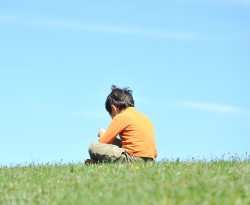Attachment Disorders or RAD
 Reactive Attachment Disorder, or RAD, is usually associated with children who have been adopted and can also occur in children with other early issues with attachment. For adopted children, RAD can be present even if a child was adopted in the first few days of life. Although RAD is generally linked to adoption, not all adopted children develop RAD.
Reactive Attachment Disorder, or RAD, is usually associated with children who have been adopted and can also occur in children with other early issues with attachment. For adopted children, RAD can be present even if a child was adopted in the first few days of life. Although RAD is generally linked to adoption, not all adopted children develop RAD.
In addition to the many misconceptions regarding Attachment Disorder, it’s often not properly diagnosed by healthcare professionals due to a lack of experience and training about the disorder. RAD is frequently misdiagnosed as ADD, ADHD, or as oppositional/defiant behavior causing a delay in proper treatment and more difficulty and stress for families.
Reactive Attachment Disorder can arise when the normal process of forming attachments to primary care figures in early childhood is disturbed. Symptoms usually begin to manifest when the child is between 0 and 2 years of age and, as the child matures, become evident in their inappropriate social interactions, expectations, and behaviors.
Is Neurofeedback Effective for Treatment of RAD?
Since RAD is a brain issue, neurofeedback – a powerful tool for the brain – is especially suited to its treatment.
With neurofeedback, a person learns to regulate his or her brain. This is an excellent match for the challenges of treating attachment disorders. Dr. Daniel Schore of UCLA has shown that a great number of attachment issues are self-regulation issues. In other words, many people with attachment disorders have difficulty managing emotions and calming themselves. Training with neurofeedback can target the areas of the brain that regulate those abilities.
 Increasing numbers of therapists who specialize in Attachment Disorder have been trained to use neurofeedback with their clients and report that neurofeedback has been very beneficial in helping clients progress in the treatment process. Because of its effectiveness, neurofeedback has become a core technique for many RAD therapists. For instance, there have been neurofeedback presentations at the national ATTACH (Association for Treatment and Training in the Attachment of Children) conferences for over 8 years.
Increasing numbers of therapists who specialize in Attachment Disorder have been trained to use neurofeedback with their clients and report that neurofeedback has been very beneficial in helping clients progress in the treatment process. Because of its effectiveness, neurofeedback has become a core technique for many RAD therapists. For instance, there have been neurofeedback presentations at the national ATTACH (Association for Treatment and Training in the Attachment of Children) conferences for over 8 years.
The results are astounding. There are hundreds of examples of neurofeedback helping children with severe issues achieve better control and healthier relationships.
Articles about RAD and Neurofeedback
Below are links to recommended, highly-informative articles by Sebern Fisher, M.A., LMH, about neurofeedback and RAD. Fisher, a psychotherapist, has been at the forefront of introducing neurofeedback to the attachment therapy field.
> Neurofeedback: A Treatment For Reactive Attachment Disorder
> Case Studies From The Field
> When Love Is Not Enough
To learn more about how neurofeedback can help you or your family with Attachment Disorder or other behavioral problems, please visit our Neurofeedback Provider List to see if we have a clinician listed near you.

